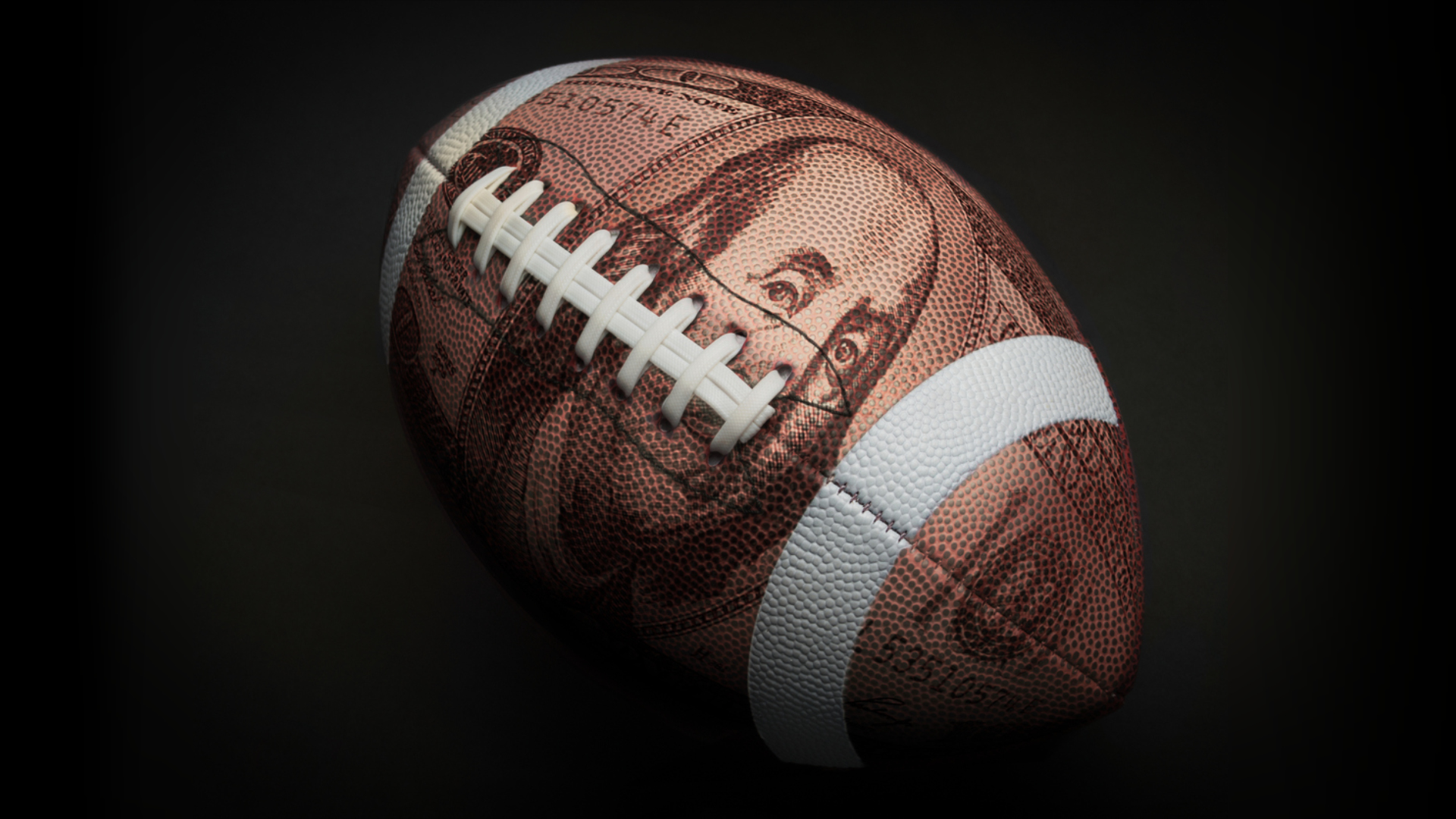Last week, authorities charged an NBA head coach, a Miami Heat guard, and a former NBA player and friend of LeBron James in connection with illegal gambling and sports betting.
It’s not the first sports-betting scandal since the Supreme Court struck down the law restricting sports betting in 2018. ESPN counts at least 23.
“NBA betting scandal surprise anyone?” ran a headline at the Nevada Independent. “I didn’t think so.”
But the situation’s high probability didn’t make it less serious. The U.S. Senate asked for a report from the NBA, which told its 30 teams it was reassessing its relationship with legal gambling.
The news media is also weighing in.
“The NBA’s gambling scandal was utterly predictable—and other pro sports will be next,” added a columnist for the Los Angeles Times. The New Yorker titled it “The Sports-Betting Disaster,” and The New York Times declared, “Gambling is Killing Sports and Consuming America.”
It’s more likely to be consuming if you’re a male between 18 and 49 years old, studies show. That demographic is more than twice as likely 48 percent) as the average American (22 percent) to hold a sports-betting account. More than half have chased a losing bet with another in hopes of making their money back, and 20 percent have had a hard time meeting their financial obligations.
“I get the sense that it’s quite common, even among Christian college students,” said Josh Hollinger, associate professor of economics at Dordt University in Sioux Center, Iowa. “Students have a sense that this could be dangerous, but they also tend to think they can use it in moderation or with safeguards. I think when something is legalized and then is normalized by your peers, it feels safer to take part in.”
The Gospel Coalition asked Hollinger, an economist whose research interests include sports economics, about the financial implications of sports betting, what hope he has for those addicted, and how to engage with play, competition, and predictions in a way that honors God.
From an economic point of view, how can we think about sports betting?
Economically, you can view it either as an investment or as entertainment.
Some people might think betting on sports isn’t very different from investing in a stock or other financial asset—in both cases, you aren’t sure what the outcome will be, and it’s possible that you could lose your money.
But when you invest in a financial asset, such as stock in a company, something is being produced for financial gain, which is the principle our economy rests on. There is an underlying return or profit being generated that can be shared among investors.
Sports betting, on the other hand, is a zero-sum game: One person’s gain is someone else’s loss. You bet over or under on a certain score—or now with all the prop bets, you can bet on how many points a player will get, whether a kicker will make a field goal over 47 yards, or which celebrity will be shown first on the game broadcast.
Some people bet on one side, and some on the other side, and the book takes a cut for the transaction cost.
It’s like flipping a coin. Sometimes you win; sometimes you lose. Either way, the house is always taking its share. And we’re not always good at thinking probabilistically about the risk, especially when we have—or hear stories about—outcomes where a lot of money was made.
It’s not a good investment strategy.
What about doing it for entertainment purposes?
The trouble with that is the apps are designed to be addicting. And like with so many addictions—gaming, pornography, drugs—you eventually have to chase harder and harder for highs that are smaller and smaller.
It’s hard to see a financial upside here.
Yes. In economics, a lot of models start by assuming that people are rational and optimizing things—making decisions that are best for themselves. But behavioral economics is focused a lot more on how we actually operate, given limited attention, imperfect self-control, and the effects of emotion and habit. From a Christian point of view, this also reflects our fallen condition.
We saw social media companies exploit human psychological weaknesses to gain and keep users. Sports-betting apps are doing a similar thing. When they give you money to join, they’re basically telling you they think their product is addictive enough to keep you on.
 Parlay bets, for example, are especially psychologically tricky. That’s when you stack reasonable bets—this player will gain this many yards, or that player will score a touchdown, or this one will catch a pass—and bet that they’ll all happen in the same game. Each one sounds very plausible. But the more you stack together, the less likely it is that the whole event will happen.
Parlay bets, for example, are especially psychologically tricky. That’s when you stack reasonable bets—this player will gain this many yards, or that player will score a touchdown, or this one will catch a pass—and bet that they’ll all happen in the same game. Each one sounds very plausible. But the more you stack together, the less likely it is that the whole event will happen.
Making those bets is very tempting for sports fans, who feel like they have an edge, or that they know more than other people about what is likely to happen.
But one of my favorite ideas in finance is the efficient market hypothesis, which means markets tend to incorporate information pretty well. For example, during COVID-19, you might have reasoned that since people are going to be staying home, they’re going to buy a lot of home improvement supplies, and therefore Home Depot stock going to really appreciate in value.
That may be true, but everyone else has access to the same information you do, so you probably aren’t going to beat the market by buying an asset before that information is reflected in the price.
The same thing is true for sports. Sports fans tend to think we know sports and have a good sense of how many yards a player is going to get, or which team is going to win. But all the information we have is public, so it’s incorporated by the bookkeeper as they’re setting the lines and odds. And they have in-depth statistics and very fancy predictive analytical tools. You just aren’t going to beat that by watching games on Sunday and reading ESPN.
This sounds like a recipe for disaster.
Especially for those who can least afford it. After the Supreme Court decision, a number of states legalized gambling. Because permission rolled out slowly, researchers were able to compare before and after data in those states and compare to states that hadn’t legalized yet. They found that after a state legalizes sports gambling, there is an increase in bankruptcy rates, debts sent to collections, auto-loan delinquencies, and credit-score ratings. Savings are also significantly reduced, and credit-card debt rises, especially among financially vulnerable households.
It introduces a difficult ethical question: How much responsibility should we feel for being associated with something that is doing harm to people somewhere else?
It’s worth thinking about.
And worth talking about, especially with those we know who might be dabbling in—or struggling mightily—with sports gambling. Do you have any advice for how to have a productive conversation with them?
From the conversations I’m having, I get the sense that they don’t really want to change their minds!
You could talk about the risks, look at the statistics, or explain how it’s a bad investment. But that’s not always compelling, because most young men think, I’m not addicted. I’m not going into debt. I can control this. It makes watching sports more fun.
A better angle might be to talk about stewardship. Our resources—our money, our time, and our mental bandwidth—are finite. Are you using those to love God and serve others in the best way possible?
Our resources—our money, our time, and our mental bandwidth—are finite. Are you using those to love God and serve others in the best way possible?
I’d be curious what you would find out if you took a poll of Christian men on college campuses and asked, “Who is involved in sports betting? How much time do you spend doing it, or thinking about it? And what else do you spend time on? How much time are you spending reading the Bible, or studying, or talking with people?”
Just because we’re not taking enough poison to kill us doesn’t mean it’s great to take some. There are healthier ways we can think about sports, statistical predictions, and money.
What are some of those ways?
Play is good—it is created by God and honors God. Competition, both in sports and in the market, is good. And analytics and prediction are good gifts we can use to make the world better.
One thing I’ve done with family or friends at work is to do a survivor pool. Each week you pick a team in the NFL and if that team wins, you survive. If they lose, you’re out. (You can only pick each team once, so you can’t just pick the Chiefs every week!) And then, at the end, there’s a small prize like ice cream or treating the winner to dinner.
I’ve also played fantasy football, and I enjoy that a lot. My friends and I pay a small annual fee to join, and then we manage a team, trying to predict how players will perform statistically. It’s allowed me to chat with friends I wouldn’t have easily kept in touch with otherwise. (You do have to be careful with this—sometimes it can take up more time than it should!)
Every spring, a lot of people enter March Madness bracket competitions with their coworkers. I probably wouldn’t sign up if the entrance cost was $100, but I might if it was a few dollars.
A good rule of thumb would be to think of sports betting like we think of alcohol: forbidden by God in excess and approached with caution in moderation (Eph. 5:18; Prov. 13:11; 1 Tim. 6:10). Ask yourself how much it’s costing, how frequently you’re doing it, and whether there’s a better way to achieve your goal—in this case, of making money, enjoying sports, or connecting with friends.
This is great advice. What would you share with someone who has gotten in deep with gambling, and perhaps feels addicted or is facing some crushing debt?
If you belong to Christ, he is not going to let you go, which is really good news. He is always with you and for you.
That said, there is all sorts of trouble we can get into, including sports betting. The Lord does let us experience the consequences of our actions. But those can be a severe mercy, if we will humble our hearts, learn from our errors, and turn back to wiser ways of living.
For anyone in debt or struggling to break free, I encourage you to reach out to a pastor or counselor for help. There’s always a path from where you are to where God wants you to be. For young men who aren’t yet facing major financial troubles, it may be a blessing to lose some bets and learn the lesson before the stakes are higher.
There are better alternatives to high-frequency sports betting on an app, even if healthier ways of enjoying sports don’t offer the same high. But part of making wise choices is not always pursuing the thing that pulls you the hardest or gives you the strongest, most immediate thrill. Instead, pursue Christ and his kingdom. There is nothing else that better deserves your time, attention, and resources—and nothing else that will satisfy so well.
News Source : https://www.thegospelcoalition.org/article/young-men-sports-gambling/
 Your post is being uploaded. Please don't close or refresh the page.
Your post is being uploaded. Please don't close or refresh the page.





